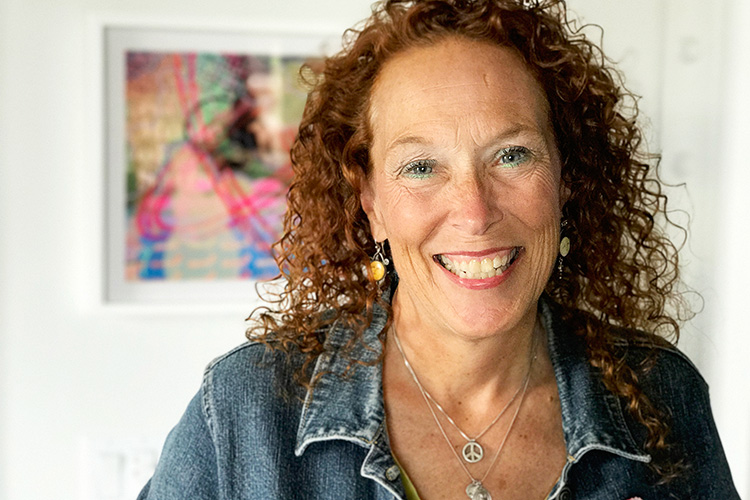Rapid Blog: It’s a brand new day for cannabis in Michigan
In this Rapid Blog, Roberta F. King, co-owner of Canna Communication, explores the future for marijuana in Michigan after the approval of Proposal 1.

Roberta F. King is the co-owner of Canna Communication. In addition to being a cannabis advocate, she’s an avid hiker, kayaker, sometimes runner and published author. This essay is her own and does not necessarily reflect the views of Rapid Growth or its parent company, Issue Media Group
There are moments in your life when things happen and you always remember where you were and what you were doing. Some memorable events are bad, like the Challenger explosion, the World Trade Center attacks, or the death of Jerry Garcia. And then there are the good, memorable events.
For me, I’ll never forget when same-sex marriage was made legal and most recently when cannabis prohibition ended in Michigan with the voter approval of Proposition 1. My business partner and I launched our firm, Canna Communication, in the summer of 2017, knowing we’d be working in medical cannabis for a couple of years, but were focused on the passage of adult-use recreational legalization. I spent election night in Detroit watching voting returns in a Jefferson Avenue law office, consuming cannabis with a few dozen other activists until early in the morning when we were sure we’d won. I proudly wore the heady scent of marijuana the entire next day.
Sometime in early December —ten days after the election results are certified — Prop 1 will begin to be implemented. For those of you that were hoping to go out and buy cannabis in a shop, you’ll have to wait for at least a year; that’s how long the legislature has to review and adopt the law.
The good news is, if you already have cannabis on your person, you’re not a criminal anymore, and that’s the most critical aspect of the passage of this law.
If commerce and tax revenue are the brains of ending prohibition, then decriminalization is its heart.
With the new law, you can grow up to 12 plants on your property without having a caregiver license. You can possess up to 2.5 ounces on your person. You can have up to 10 ounces in your home. None of this is a crime anymore. If you are a non-medical, card-carrying marijuana consumer, you no longer need to worry about trouble with the police if you have cannabis and let’s say, you are stopping for speeding. As long as you are NOT under the influence or using as you’re driving, the small bag of marijuana in your purse or pocket is your own damn business.
For people of color, marijuana law has always been unfair. According to the ACLU, people of color are arrested at a rate 3.7 times greater than white people, though whites, African Americans, and Latinx people use cannabis at the same rate. The war on drugs that we all grew up with was an invention of President Richard Nixon, not based on facts, but on his personal whim. It’s come to light that he moved cannabis to schedule 1 status to repress young war protesters and black people.

Consider this quote from John Ehrlichman, Nixon’s domestic policy advisor speaking to reporter Dan Baum in Harper’s magazine, “The Nixon campaign in 1968, and the Nixon White House after that had two enemies: the antiwar left and black people. You understand what I’m saying? We knew we couldn’t make it illegal to be either against the war or black, but by getting the public to associate the hippies with marijuana and blacks with heroin, and then criminalizing both heavily, we could disrupt those communities. We could arrest their leaders, raid their homes, break up their meetings, and vilify them night after night on the evening news. Did we know we were lying about the drugs? Of course, we did.”
How about that 10 ounce possession cap that has taken a few people by surprise.
Cannabis flower is light in weight, and 10 ounces adds up to a lot of product, more than 200 joints depending on how you roll. Critics of the law say that’s too much. But, consider this: there’s no limit to the amount of beer, liquor, or wine you can have in your home, right? If you want a wine cellar with 200 bottles, a well-stocked bar, or a keg of beer in your home, it’s your right as an adult to do that. We need to think about cannabis that way, too. Just because you have you ten ounces, doesn’t mean you’re just sitting around consuming it all at once. Marijuana keeps well in a cool, dark, dry place, just like wine.
Cannabis legalization brings opportunities for businesses and jobs in Michigan and not just selling the plant. Because public consumption (smoking or vaping) isn’t allowed — not on the street, in a place of business, or in your personal vehicle — there should be opportunities for people to create private or membership-style spaces for consumption.
Popular in already-legal states are bud and breakfast accommodations, outdoor patios where people can consume, places for puff n paint events, party buses where people can consume while taking tours of growing operations and provisioning centers. In Colorado, Amsterdam-style coffee shops are popping up. In Aspen, Colorado, cannabis sales outpaced alcohol in 2017. Much of the potential cannabis tourism will be dependent on how Michigan’s legislature digs into the specifics of the law.
Marijuana activists still have work to do post-Prop 1. People need to stay in contact with or begin conversations with elected officials about how the law will be implemented. It’s likely that the legislature will attempt to over-regulate cannabis where it is able to do so. On the local level, we need to watch our city, village, or township meeting agendas for opt-in discussions. Just over 100 municipalities in Michigan are open to medical marijuana businesses at present, and many municipalities were waiting to see if legalization passed. The marijuana opposition has stated that its next effort is to stop opt-ins in communities. If you want to see Prop 1 enacted in your community, you’ll continue to need to make your voice heard. We need to work together, too, for expungement of prior marijuana arrest records and for the release of those serving time for minor marijuana crimes.
By the time of the next election, we’ll have lived with recreational cannabis for about a year. There will be some speed bumps and rough patches, I’m sure. But like the West and East coast states that have already blazed the trail, the sky will not fall and Michigan citizens will see the benefit of new businesses, jobs, and taxes, not to mention the easy pleasure of marijuana consumption.









